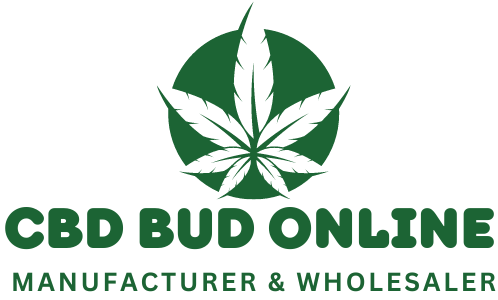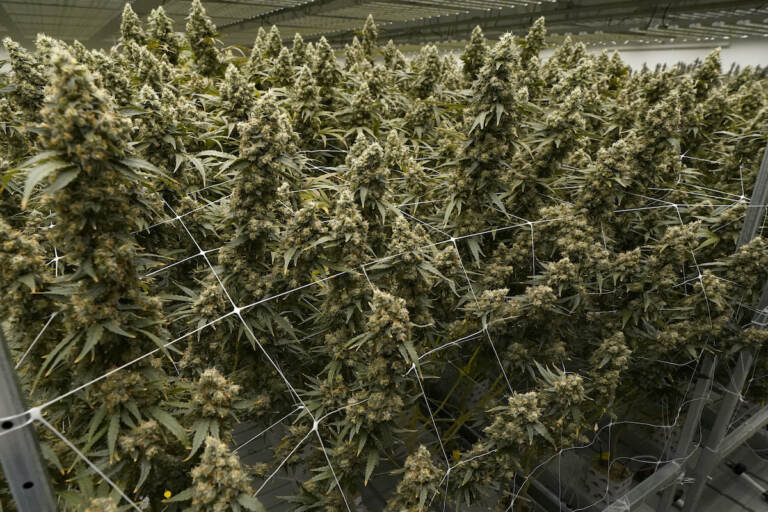State of the Art
HEMP AND CBD LEGISLATION IN EUROPE
In Europe, the laws regarding hemp and CBD vary from country to country. The European Union (EU) has provided some guidelines, but member states have the authority to establish their own regulations within certain boundaries. Here are some key points regarding hemp and CBD legislation in Europe:
- European Union:
- The EU has defined hemp as cannabis sativa L. containing no more than 0.2% THC (the psychoactive component of cannabis) on a dry weight basis.
- Hemp cultivation is allowed in the EU member states, provided it complies with specific regulations.
- CBD derived from hemp is not classified as a narcotic substance and is considered legal if it meets certain criteria.
- United Kingdom:
- The UK follows the EU regulations on hemp cultivation and CBD.
- CBD products are legal as long as they contain less than 0.2% THC.
- Germany:
- Hemp cultivation is permitted in Germany under specific conditions, including a maximum THC content of 0.2%.
- CBD products derived from hemp are generally legal as long as they contain less than 0.2% THC. However, there are restrictions on advertising and labeling.
- France:
- Hemp cultivation is allowed in France under specific conditions, including a maximum THC content of 0.2%.
- The legality of CBD products in France is complex and subject to interpretation. While CBD is not explicitly prohibited, the marketing and sale of CBD products are heavily regulated, and some restrictions apply.
- Netherlands:
- The Netherlands has a long history of tolerance towards cannabis, and the sale of cannabis products in coffee shops is permitted.
- CBD products with less than 0.2% THC are generally considered legal.
- Switzerland:
- Switzerland has its own regulations regarding hemp cultivation and CBD.
- Hemp cultivation is allowed with a THC limit of 1%.
- CBD products with less than 1% THC are considered legal.
It’s essential to note that this information is not exhaustive, and there may be additional requirements and restrictions in each country. Additionally, some countries have stricter regulations on CBD as a food or supplement ingredient. It’s always advisable to consult local legislation and seek legal advice for the most accurate and up-to-date information on hemp and CBD regulations in specific European countries.
LEGAL STATUS OF HEMP
In many countries, hemp is legal to cultivate, process, and sell, as long as it meets certain criteria regarding THC content and licensing requirements. THC (tetrahydrocannabinol) is the psychoactive compound found in cannabis that is responsible for its intoxicating effects. Hemp is typically defined as cannabis plants with very low levels of THC.
The legal status of hemp is often determined by the THC content in the plant. In the European Union (EU), for example, hemp is defined as cannabis sativa L. with a maximum THC content of 0.2% on a dry weight basis. Many other countries have similar thresholds, such as 0.3% THC in the United States. These limits are intended to differentiate hemp from marijuana, which typically contains higher levels of THC.
When hemp meets the specified THC limit, it is generally legal to cultivate and process for various purposes, including industrial use, fiber production, and the extraction of CBD (cannabidiol). CBD is a non-intoxicating compound found in hemp that has gained popularity for its potential health and wellness benefits.
However, it’s important to note that the legal status of CBD products derived from hemp can be more complex. Some countries have specific regulations for CBD, including labeling requirements, restrictions on advertising, and limits on THC content. In some cases, CBD may be regulated as a medicinal product, while in others, it may be allowed as a food supplement or a cosmetic ingredient.
It’s important to check the specific laws and regulations of the country you are interested in to understand the legal status of hemp and CBD in that jurisdiction. Laws can change over time, so it’s always advisable to consult the most recent information from official government sources or seek legal advice for accurate and up-to-date information.
CBD IN COSMETICS
The use of CBD (cannabidiol) in cosmetics has gained popularity in recent years. CBD is a non-intoxicating compound derived from hemp, and it is believed to have potential benefits for the skin due to its anti-inflammatory and antioxidant properties. However, the legal status and regulations surrounding the use of CBD in cosmetics vary from country to country.
In some countries, such as the United States, the use of CBD in cosmetics is generally allowed, provided that the CBD is derived from hemp and contains less than 0.3% THC. However, specific labeling requirements and compliance with other regulations may apply.
In the European Union (EU), the use of CBD in cosmetics is more complex. The EU Novel Food Catalogue, which provides guidance on novel food ingredients, states that CBD extracted from cannabis sativa L. (including hemp) should be considered a novel food. Novel foods are defined as food ingredients that were not consumed significantly before 15 May 1997. Therefore, CBD used in cosmetics in the EU may be subject to novel food regulations, and a safety assessment and authorization may be required.
Each EU member state has the authority to interpret and enforce these regulations, which has led to variations in the treatment of CBD in cosmetics across Europe. Some countries have taken a more lenient approach and allow the use of CBD in cosmetics, while others have imposed stricter restrictions or banned the use of CBD altogether.
It’s important to note that regulations can change over time, and new guidelines or policies may be introduced. If you are interested in using or selling CBD cosmetics, it is advisable to consult the specific regulations of the country you are operating in or seek legal advice to ensure compliance with the latest requirements.
HEMP AND CBD IN FOODSTUFFS
The use of hemp and CBD (cannabidiol) in foodstuffs is a topic that is subject to varying regulations and restrictions across different countries. Here is an overview of the general considerations:
- European Union (EU):
- In the EU, the use of CBD and hemp-derived products in foodstuffs is subject to the Novel Food Regulation. According to the EU Novel Food Catalogue, CBD extracted from cannabis sativa L. (including hemp) is considered a novel food.
- Novel foods require pre-market authorization, which includes a safety assessment and approval by the European Food Safety Authority (EFSA).
- As of my knowledge cutoff in September 2021, CBD was not authorized as a food ingredient or included in the EU’s list of authorized novel foods. Therefore, the general consensus is that CBD should not be used in food products within the EU without specific authorization.
- United States:
- In the United States, the legal status of CBD in foodstuffs is complex and evolving. The U.S. Food and Drug Administration (FDA) has not approved CBD as a food additive or dietary supplement.
- However, the FDA has approved one CBD-based prescription drug, Epidiolex, for the treatment of certain epilepsy disorders.
- The FDA has stated that it is currently evaluating the potential regulatory pathways for CBD in food and dietary supplements and has conducted public hearings and solicited public input to gather information on the topic.
- Other Countries:
- Regulations regarding hemp and CBD in foodstuffs vary widely across countries outside the EU and the U.S.
- Some countries have explicitly allowed the use of CBD in food products, while others have imposed restrictions or prohibited it altogether.
- It’s crucial to consult the specific regulations of the country in question to understand the legal status of hemp and CBD in foodstuffs.
It’s important to note that regulations and policies can change over time, and new guidelines or legislation may be introduced. Therefore, it’s advisable to consult the most recent information from official government sources or seek legal advice to ensure compliance with the latest regulations regarding the use of hemp and CBD in food products.
INTERESTING COUNTRY-SPECIFIC REGULATIONS
Certainly! Here are a few interesting country-specific regulations related to hemp and CBD:
- Switzerland:
- Switzerland has relatively lenient regulations regarding hemp cultivation and CBD products.
- Hemp cultivation is allowed with a THC limit of 1%.
- CBD products with less than 1% THC are considered legal.
- This permissive approach has led to the development of a thriving CBD industry in Switzerland.
- Canada:
- Canada legalized recreational cannabis nationwide in 2018, including both marijuana and hemp.
- CBD derived from either marijuana or hemp is legal for both medical and recreational use.
- The production and sale of CBD products are regulated by the Cannabis Act, which requires licensing for businesses in the cannabis industry.
- Japan:
- In Japan, THC is strictly regulated, and CBD extracted from cannabis plants is considered a controlled substance.
- However, CBD derived from hemp, containing less than 0.03% THC, is allowed for use in cosmetics.
- The sale and distribution of CBD products in Japan are subject to specific regulations and licensing requirements.
- Australia:
- Australia has strict regulations regarding CBD as a therapeutic substance.
- CBD is classified as a Schedule 4 (prescription-only) substance and can only be obtained with a prescription from a registered medical practitioner.
- The Therapeutic Goods Administration (TGA) oversees the regulation of CBD products in Australia.
- Italy:
- Italy has taken a progressive approach to hemp cultivation and CBD products.
- Hemp cultivation is legal with a THC limit of 0.6%.
- CBD products derived from hemp are considered legal if they contain less than 0.6% THC.
- Italy has seen significant growth in its hemp and CBD industry, with various CBD shops and products available in the market.
It’s important to note that these regulations are based on information available up until September 2021, and the landscape may have evolved since then. For the most up-to-date and accurate information, it is recommended to consult official government sources or seek legal advice specific to the country you are interested in.

